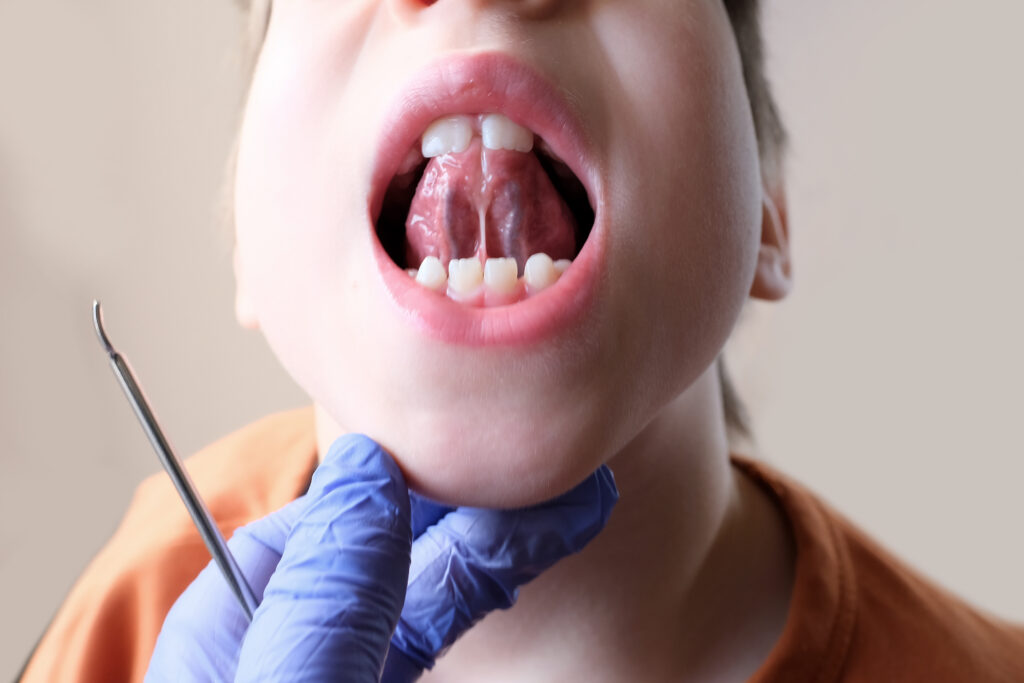As a parent, you strive to help your children learn good habits and give them the tools they need to live happy, healthy lives. One crucial aspect of their well-being is their oral hygiene. Establishing good oral health habits early sets the foundation for a lifetime of healthy smiles. Keep reading to discover 10 practical tips to help you teach your child good oral health habits.
#1. Lead by Example
Children are excellent imitators, and they learn many behaviors by observing their parents. Therefore, one of the best ways you can teach your child good oral health habits is by making brushing and flossing a family affair. When your child sees that you prioritize dental care, they will be more likely to recognize that it’s an essential part of their daily routine.
#2. Start Early
Good oral health habits should start as soon as your child’s first tooth comes in, usually when they’re about six months old. Use a soft infant toothbrush to gently clean their teeth and gums, and as more teeth come in, you can use a tiny amount of toothpaste. Taking care of oral hygiene early on sets your child up for lifelong health.

#3. Make It Fun
Oral care doesn’t have to be a chore! Turn it into a fun activity for your child by choosing colorful toothbrushes and flavored toothpaste. You can also play their favorite song or set a timer to help them brush for the full two minutes. Some toothbrushes even come with a built-in timer or music to make brushing a fun game for children.
#4. Teach Proper Technique
For oral care to be effective, proper techniques are essential. Show your child the right way to brush — use gentle, circular motions and make sure you pay attention to all surfaces of the teeth. As your child gets older, encourage them to brush on their own, but supervise them to make sure they’re doing it correctly.
As soon as your child has enough teeth, demonstrate the correct flossing technique. Let them try flossing with assistance, then as they grow, they can floss independently.
#5. Set a Routine
When developing good oral health habits, consistency is key. Establish a regular oral health routine with your child that includes brushing at least twice a day and flossing once a day. Try to keep the timing consistent — for example, you might have them brush their teeth every day after breakfast and before bed. A regular routine will help your child build good oral health habits that last.
#6. Choose Nutritious Foods
Diet has a significant impact on oral health. Try to limit your family’s consumption of sugary snacks and drinks, which can contribute to tooth decay. Instead, encourage your child to eat a balanced diet that includes lots of fruits and vegetables, along with calcium-rich dairy products. Drinking plenty of water can also help wash away plaque and food particles from the surface of the teeth.

#7. Water Over Sugary Drinks
Teach your child to choose water over sugary soda or fruit juice. Water isn’t just essential for overall health; it also dilutes acids in the mouth and washes away bacteria and debris. If your child does have sugary drinks, encourage them to brush their teeth afterward to remove harmful substances. Drinking with a straw can also limit the amount of contact sugary drinks have with the surface of the teeth.
#8. Regular Dental Check-Ups
Don’t wait until there’s a problem to bring your child to the dentist. Starting around their first birthday, schedule check-ups with the dentist every six months. Regular exams allow the dentist to monitor their oral development, provide preventative care, and catch potential issues early on.
#9. Positive Reinforcement
Praise and positive reinforcement can provide motivation for your child to develop good oral health habits. Offer words of encouragement, small rewards, or stickers to get them excited about taking care of their teeth. Make visits to the dentist’s office a positive experience by focusing on the fun aspects, such as getting a new toothbrush or picking a prize at the end of their appointment.
#10. Be Patient and Persistent
It will take patience and persistence to teach your child good oral health habits. There may be times when your child refuses to brush or floss, but don’t give up. Continue to emphasize the importance of oral hygiene, and eventually, it will become second nature to them.
Make Jenson Dental Part of Your Good Oral Health Habits
Ensure the longevity of your child’s oral health by bringing them to Jenson Dental for regular exams and cleanings. Our team members are experts in pediatric dentistry and do everything they can to make children feel comfortable and safe in our office. Schedule an appointment today!




